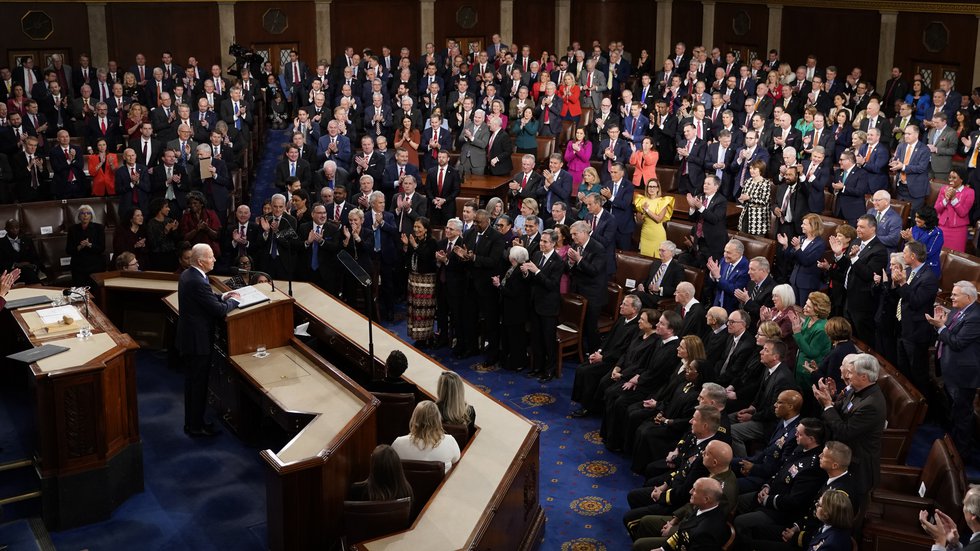
The Biden administration is intent on closing what it regards as a “giant loophole” that has allowed infrastructure projects to be built with products (other than iron and steel) “sourced from anywhere in the world.” To that end, it has proposed rules that would embed that aim in federal regulations that apply to financial grants to non-federal entities for infrastructure projects. In doing so, it makes no allowance for the purchase of foreign products covered by international agreements. That omission may effectively nullify US commitments to treat foreign products the same as US-made products in procurement covered by the WTO Government Procurement Agreement (GPA), free trade agreements, and a 1995 bilateral arrangement with the European Union.
The 2021 Build America, Buy America (BABA) Act requires states, local governments, and other non-federal entities that undertake infrastructure projects with federal funds to use US-produced iron, steel, manufactured products, and construction materials in the projects. As part of the implementation of this far-reaching mandate, the Office of Management and Budget (OMB) issued initial guidance in April 2022.
OMB is now proposing rules to implement the BABA Act that would be incorporated into the Code of Federal Regulations as a new part 184 (Buy America Preferences for Infrastructure Projects). On February 9, 2023, OMB invited public comments (by March 13) on the proposed rules. OMB’s proposal would, inter alia, align the definition of the cost of manufactured products for federal financial assistance with the definition applied to federal procurement and set stringent standards for manufacturing processes for construction materials to be considered produced in the United States.
A significant omission in the OMB proposed rules is implementation of the BABA Act directive that its ‘Buy America’ requirement be “applied in a manner consistent with United States obligations under international agreements.” That means that the domestic preference does not apply to procurement covered by such agreements.
Although OMB in its 2022 initial guidance recognized the BABA Act provision, it appeared to treat compliance with it as an option. It noted that if a state has a procurement obligation under the GPA or other trade agreement, “a waiver of a Made in America condition to ensure compliance with such obligations may be in the public interest.” Its use of “may” suggests that it regarded granting such a waiver to be optional and not certain. Even that treatment is not repeated in OMB's proposed rules. Rather, they are silent on the use of foreign products in infrastructure projects covered by international agreements. With this omission, OMB appears determined to prevent or, at least, strongly discourage the use of foreign goods covered by an international obligation. This approach undermines both trade agreements and the BABA Act’s provision for compliance with such agreements.
OMB’s 2023 proposed rules stand in stark contrast to the Obama administration’s implementation of a similar domestic preference under the American Recovery and Reinvestment Act of 2009 (ARRA). ARRA imposed a ‘Buy America’ requirement on all infrastructure projects that it funded, and like the BABA Act, excluded its application to projects subject to international obligations. In that case, the administration carefully constructed rules to provide assurance to US trading partners that it would implement the requirement in a manner that would honor US’s obligations under agreements.
In implementing ARRA in 2009, OMB incorporated a section in the CFR, 176.90 (Acquisitions covered under international agreements). In the CFR, it stated explicitly that: the 'Buy America' requirement in ARRA “shall not be applied where the iron, steel, or manufactured goods used in the project are from a Party to an international agreement.” It then both listed the relevant agreements and detailed the procurement covered under them in an Appendix (U.S. States, Other Sub-Federal Entities, and Other Entities Subject to U.S. Obligations Under International Agreements).
While the Biden administration has made clear that it does not intend to negotiate new market access agreements, it has indicated it would comply with its existing agreements. That commitment is questioned when it proposes permanent rules for infrastructure projects that make no provision for implementing the 'Buy America' requirement consistent with the US's international obligations.
Jean Heilman Grier
February 13, 2023
Related Posts
A New Book on International Procurement
"Buy America" in Infrastructure Act: Trade Agreements
White House Guidance on “Buy America” for Infrastructure Projects

